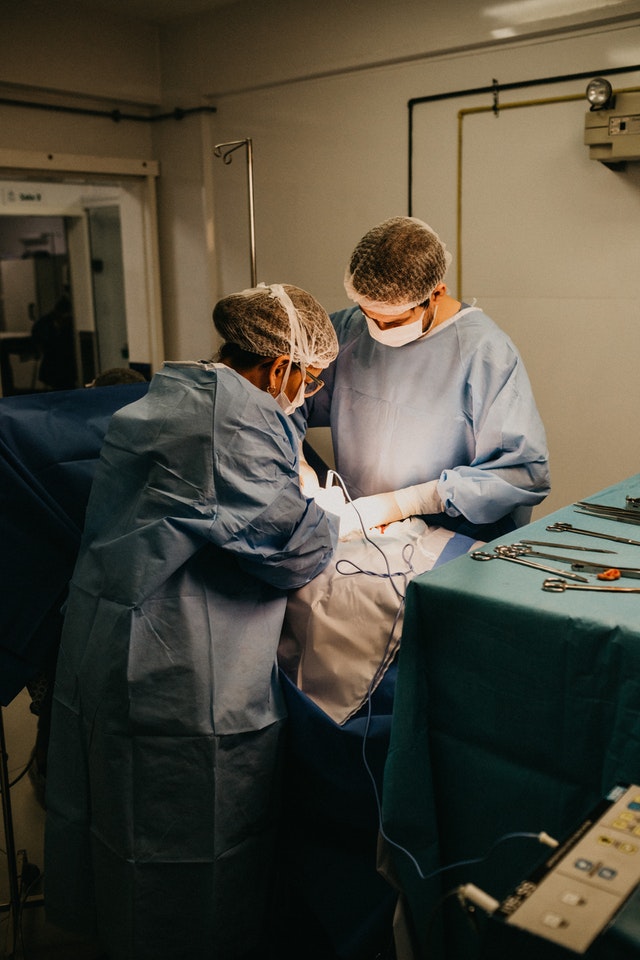Men and women are affected by hernias and often require surgery to correct the issue. A hernia is caused by muscle weakness that allows organs or tissue to bulge through.
There are several types of hernia surgery and your doctor will choose based on the severity of your hernia.
Hernia Surgery
While some hernias are only slightly annoying, others can cause serious organ damage or even death if they are left untreated. Generally, hernias occur in the groin, abdomen, within the torso or because of a previous abdominal surgery.
There are several types of hernias. A few types that would require surgery are:
-
- Epigastric Hernia- this is a protrusion of fat or intestine through the abdominal wall between the navel and the breastbone.
- Umbilical Hernia- This is the second most common type of hernia in adults. This type of hernia occurs when the abdominal wall is weakened at the belly button.
- Hiatal Hernia- With this type of hernia, the upper portion of the stomach protrudes through the diaphragm. It is commonly associated with GERD.
- Ventral Hernia- There are 350,00-500,000 ventral hernia repairs each year in the United States. This type of hernia arises from the abdominal wall where a previous surgical incision was made.
Do I Need Surgery?
While hernias can remain asymptomatic for a long time, they will not heal on their own. They are generally benign, but they can worsen very quickly.
If your hernia bulges out with abdominal pressure (like lifting something heavy) but returns inside the body after, it is referred to as “reducible”. These are generally not severe.
However, a hernia that remains in the “out” position is irreducible or incarcerated and may require surgery. This type of hernia can result in an emergency situation if it strangulates.
This means that the bulging tissue has lost blood flow, and this can be life-threatening.
Risks of Hernia Surgery
As with any surgery, there is a risk of complication. While they are uncommon, the following are possible risks:
-
- General anesthesia side effects
- Post-repair pain
- Incisional hernia
- Infection
- Urinary incontinence or difficulty urinating
- Adhesion
- Constipation
- Hernia recurrence
Before Surgery
Your surgeon will discuss all the instructions you should follow leading up to your surgery. This will prevent any delays and complications.
Typical pre-op directions include a physical exam to look for possible conditions that would prohibit surgery, fasting the day before surgery, review your current medications, bathing with antibacterial soap, and preparing for a hospital stay, if needed.
[Related: Dispelling Hernia Surgery Myths]
During Surgery
If your surgery is open, the surgeon will make a single incision at the hernia site and either remove the bulging tissue or place it back into the body. Laparoscopic surgery will involve several small incisions.
The surgeon will use a laparoscope and surgical instruments to repair the hernia. Each surgery is unique and will depend on your individual case. 
Surgery may be performed under general anesthesia or regional anesthesia. Your doctor will discuss these options with you and proceed accordingly.
Your surgeon may repair your hernia with stitches alone, but surgical mesh can be sued to strengthen the repair. FDA research has shown lower levels of hernia recurrence when mesh is used.
After Hernia Surgery
Because of the variety of hernia types, as well as the differences in procedures, there is no standard for recovery. Much of it will depend on you.
Some surgeries are extensive and require a hospital stay while others can be performed outpatient. Typically, patients can return to normal activity within 2-4 weeks. Your doctor will discuss any restrictions with you.
Hernia Surgery in Maryland
If your hernia is severe, or is causing you discomfort, your doctor will likely recommend surgery. Hernia surgery is a very common procedure, but it is still important to choose an experienced surgeon. If you need a hernia surgery contact Maryland Bariatrics today!





